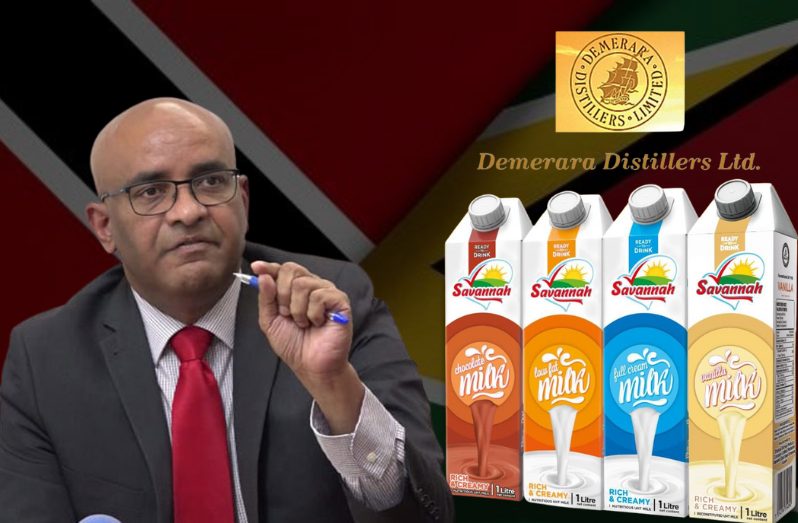–Jagdeo says; touts plans for reciprocity in matters of trade
ALTHOUGH vital sanitary regulations exist to safeguard the integrity of goods during shipment, these must not be used to “stymie” the flow of trade among Caribbean Community (CARICOM) nations, People’s Progressive Party (PPP) General Secretary and Guyana’s Vice-President, Dr Bharrat Jagdeo has said.
Dr Jagdeo’s comments on Thursday followed Trinidad’s blockage of milk products from Guyana’s Demerara Distillers Limited (DDL).
According to the General Secretary, while sanitary restrictions are supported it must not be used to stymie the flow of goods and services across the region.
“This is not a new issue and our position is not a new position; we have always been in the fore front, the fight for the reduction of trade barriers in our region. We believe it’s essential to the promotion of wealth and the growth of trade across CARICOM,” he added.
Following a meeting with representatives from Trinidad and Tobago’s Ministry of Trade and Industry and Guyana’s Private Sector Commission (PSC) on Wednesday, it was agreed that the genesis of the matter is a misunderstanding by the importer in regard to specific regulatory requirements for the importation of milk products into the twin island.
The Twin Island’s Ministry of Trade and Industry said that the government will expedite the process once the regulatory requirements and relevant information are made available by DDL.
According to the ministry, on April 22, a consignment of goods which included milk, mineral waters and flavoured beverages arrived in Trinidad. All products, except the milk, were cleared by the island’s Chemistry Food and Drugs Division (CFDD).
The ministry noted that it was the importer that took the decision to return the products to DDL.
“We have had a long-standing stable position that phytosanitary restrictions must not be used to supplant tariffs …going forward we will insist upon full reciprocity in matters of trade,” Dr Jagdeo said.
He related that Guyana is simply looking to be treated fairly in the trade of goods and this will be applicable to any state.
“All we want is our goods to be treated fairly in their market as their goods are treated here,” Dr Jagdeo said.
Back in February, Guyana’s President and current CARICOM Chairman sounded a call for the people of the Caribbean to hold their respective leaders accountable and address the existing barriers.
“We are continuing work to address the removal of trade barriers within Member States and the people of CARICOM must put pressure on the leaders of CARICOM to remove the trade barriers. It is of no use and purpose for this region,” Dr. Ali had said, during his address at the opening ceremony of the 46th Regular Meeting of the Conference of CARICOM Heads of Government held in Georgetown.
Trade barriers include any regulation or policy that restricts trade, especially tariffs, quotas and licences, among other things.
The importance of addressing this issue is amplified by ongoing efforts of the Caribbean leaders to slash the region’s exorbitant food-import bill by 25 per cent in the next year.



.jpg)








